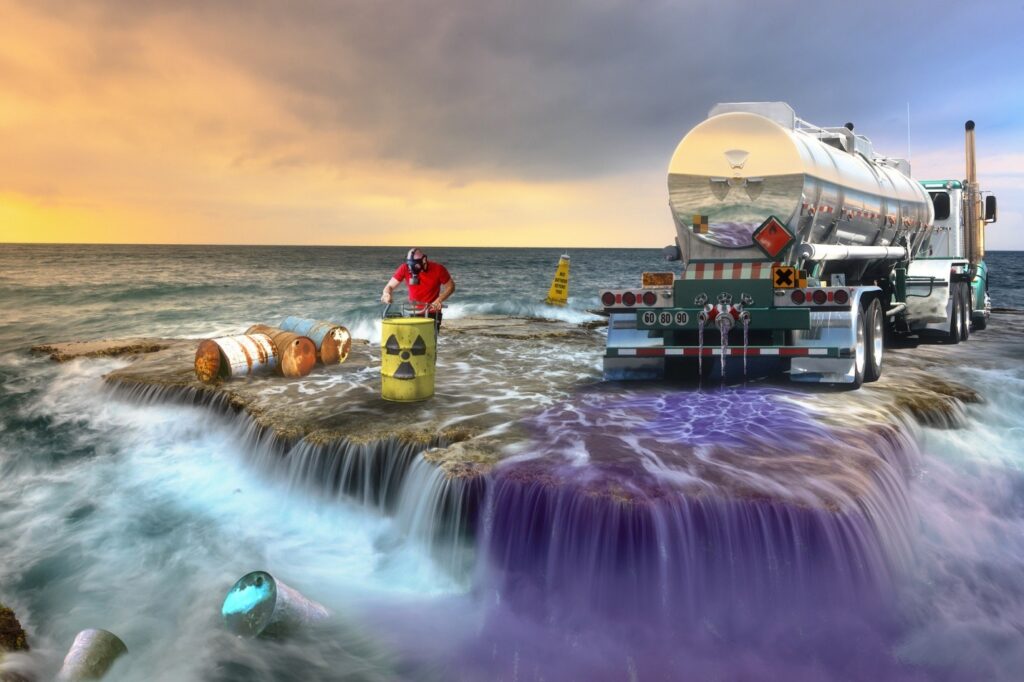Reclaim Waste Things To Know Before You Get This
Reclaim Waste Things To Know Before You Get This
Blog Article
Not known Facts About Reclaim Waste
Table of ContentsThe Main Principles Of Reclaim Waste The Single Strategy To Use For Reclaim WasteReclaim Waste for BeginnersReclaim Waste - The FactsReclaim Waste - An Overview
Domestic sewage waste refers to the waste and products from a household septic tank. The proper monitoring and disposal of residential sewer waste need fluid waste to be moved to a sewer therapy plant where the proper techniques and equipment are used to cleanse and dispose of waste.
Commercial waste commonly includes prospective dangers, such as flammable materials or a mix of liquid and solid waste products, and calls for an advanced and in-depth disposal procedure. The disposal of business waste normally involves the purification of waste prior to transport to guarantee safe and proper disposal. Industrial waste is created from byproducts and runoff of industrial procedures and production.
This type of waste can not utilize the exact same sewer monitoring transport or processes as septic or business liquids. The commercial waste management process requires the examination and testing of liquid waste prior to it undertakes the disposal procedure (industrial wastewater treatment). Runoff waste is the liquid waste that comes from overflow and excess stormwater in very populated locations or cities
Drainage waste can cause contamination and flooding if not managed correctly. Discover more about sewage system cleaning and waste monitoring. Guaranteeing correct waste administration can avoid calamities and reduce ecological damage. Both individuals in household settings and experts in business or manufacturing markets can profit from comprehending the processes and regulations of liquid waste monitoring.
Reclaim Waste Things To Know Before You Get This
Get in touch with PROS Services today to discover about our waste monitoring and disposal solutions and the appropriate means to care for the liquid waste you produce.
(https://www.anyflip.com/homepage/imqzz#About)This so-called 'wastewater' is not only an essential source but, after therapy, will be launched to our land, rivers or the sea. Made use of water from commodes, showers, baths, kitchen sinks, washings and commercial procedures is known as wastewater.

water made use of to cool down equipment or tidy plant and equipment). Stormwater, a form of wastewater, is runoff that streams from farming and metropolitan areas such as roof coverings, parks, gardens, roadways, paths and seamless gutters into stormwater drains, after rainfall. Stormwater moves neglected straight to local creeks or rivers, eventually getting to the sea.
Reclaim Waste - The Facts
In Queensland, many wastewater is dealt with at sewer therapy plants. Wastewater is transported from residential or commercial websites through a system of drains and pump stations, referred to as sewerage reticulation, to a sewage therapy plant. City governments build, maintain and run most sewer therapy plants. Operators are accredited under the Environmental Defense Act 1994 to discharge cured wastewater at an appropriate ecological requirement right into rivers.
The Department of Natural Resources advises neighborhood federal governments about handling, operating and preserving sewerage systems and treatment plants. In unsewered locations, city governments might need homeowners to install specific or family sewer treatment systems to treat domestic wastewater from toilets, kitchen areas, bathrooms and washings. The Department of Natural Resources authorises making use of home systems when they are proven to be effective.
Many stormwater receives no therapy. In some new neighborhoods, treatment of some stormwater to eliminate trash, sand and crushed rock has actually begun making use of gross toxin catches. Wastewater therapy happens in four phases: Eliminates solid matter. Bigger solids, such as plastics and other things mistakenly released to sewers, are gotten rid of when wastewater is travelled through displays.
Wastewater then flows into big containers where solids work out and are gotten rid of as sludge. Grease and residue are skimmed from the surface. Makes use of tiny living organisms knows as micro-organisms to break down and eliminate continuing to be dissolved wastes and great fragments. Micro-organisms and wastes are integrated in the sludge. Gets rid of nitrogen and phosphorus nutrients that could create algal blooms in our waterways and endanger water life.
Some Ideas on Reclaim Waste You Need To Know
Nutrient elimination is not available at all sewage treatment plants due to the fact that it needs expensive specialised equipment. Clear fluid effluent generated after therapy may still include disease-causing micro-organisms - liquid waste disposal melbourne.

A lot of wastewater streams into the sewage system. Under the Website Act, local federal governments carry out approvals and permits for ecologically relevant activities (Periods) including wastewater launches that may have a local influence.
Reclaim Waste Things To Know Before You Buy
Otherwise, samples are taken for research laboratory analysis. Commonly several tests are required to develop the degrees of each of the different pollutants such as oils, heavy metals and pesticides in water. Tracking provides accurate details about water high quality and can verify that permit problems are being met. The information acquired via tracking offers the basis for making water quality decisions.
Report this page